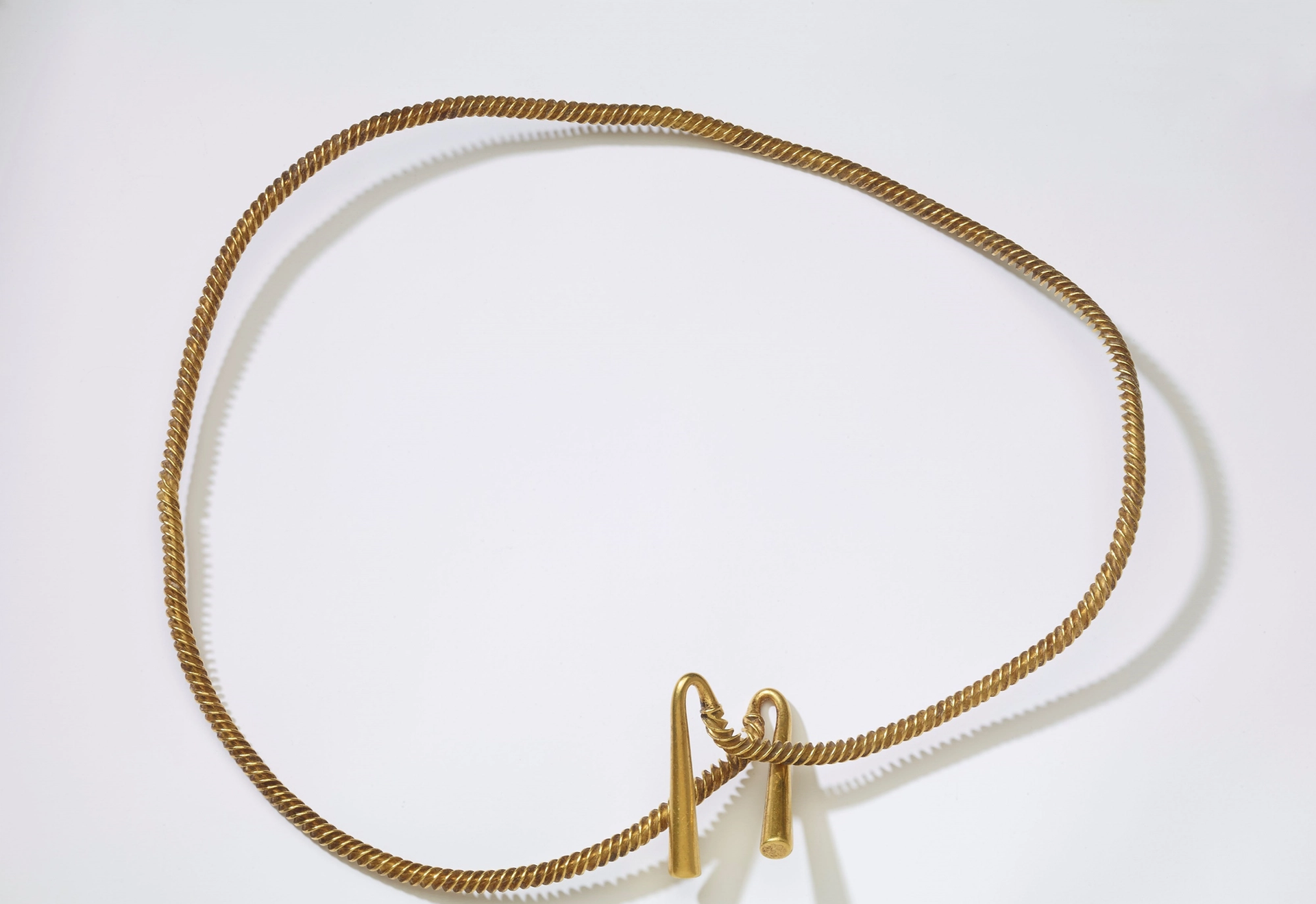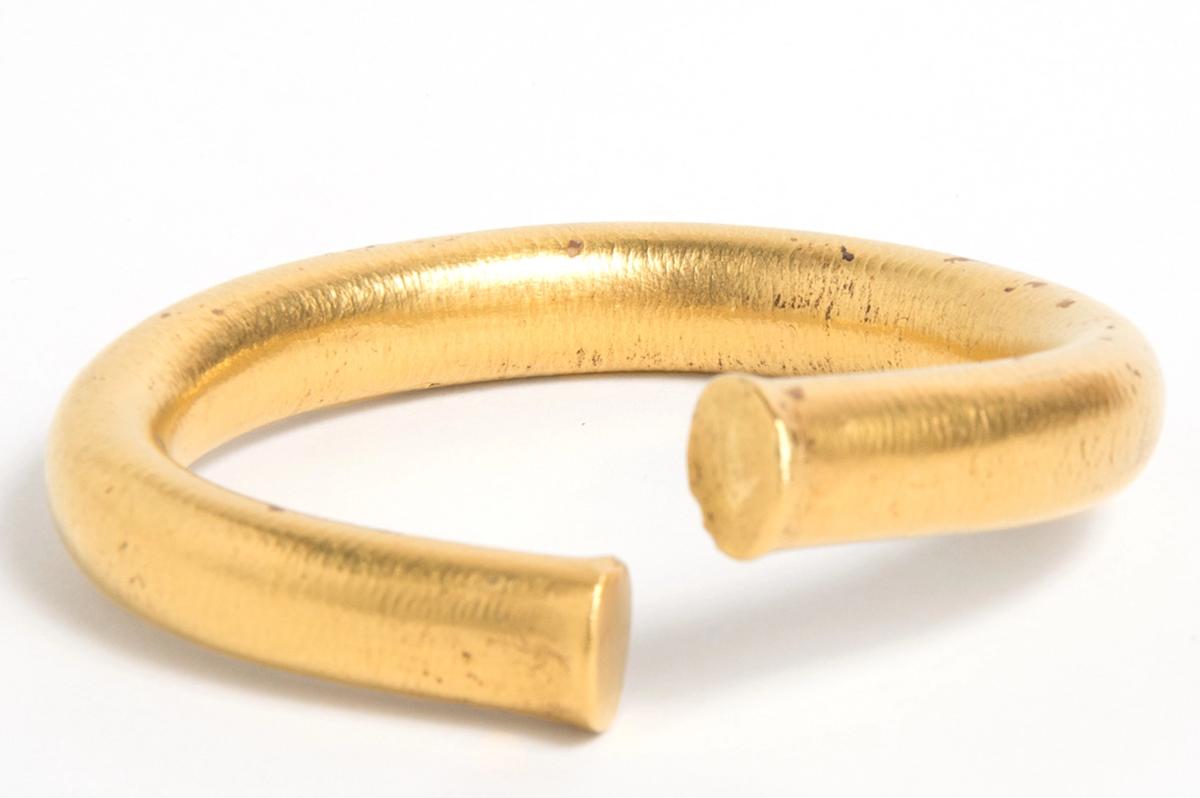The theft of a Bronze Age gold torc and bracelet from a UK institution has sparked calls for greater government investment in the museum sector.
Police are yet to make arrests and are appealing for information to track down two thieves who broke into the Ely Museum, Cambridgeshire, on 7 May and escaped on electric scooters.
With gold prices hitting a record high in recent months experts are worried that the precious artefacts, worth £220,000 in their current form, might be melted down for their scrap metal value.
Archaeologist Tess Machling said in a post on the social media site X, formerly known as Twitter, that the process of melting the gold wouldn’t be straightforward. She also suggested it could be difficult to sell, writing: “It’s an odd alloy composition for modern gold and correcting and moving on unhallmarked gold is tricky.”
The 3,000-year-old torc is created from a cross section bar, carefully twisted into a spiral. The object, weighing 730g, was found by a metal detectorist in a ploughed field in 2015. It was then secured for Ely Museum in 2017 after a major local fundraising campaign. It is considered one of the most significant discoveries of its kind in England for over a century and is much larger than most torcs, which usually fit around an arm.

The stolen torc is considered one of the most significant discoveries of its kind in England for more than 100 years and is much larger than most torcs, which usually fit around an arm
© Cambridgeshire County Council
Before the arrival of the torc, the bracelet, also Bronze Age, was known to be the museum's star attraction. It had arrived at the museum in 2010, after it was unearthed by a novice metal detector in Fordham, ten miles from Ely.
Elie Hughes, Ely Museum’s curator said: “We are devastated by the loss to the museum and to the local heritage of the region. It is a huge blow after the incredible support from the community in acquiring the torc in 2017. As a culturally significant object, it cannot be replaced. Our priority now is working with the police to locate the stolen objects.”
Police suspect the thieves used a crowbar to gain entry to the museum and a sledgehammer to smash the reinforced glass containing the items.
Matthew Pope, associate professor at University of College London’s Institute of Archaeology says the incident should be a wake up call about a lack of investment in the museum sector.
He says: “After 14 years of austerity-driven underfunding, many of our museums are suffering. To see them the target of robbery like this is heartbreaking, we can only hope future governments invest to ensure our museums balance the very best in security with access for the public to view our shared heritage. More than this, our curators are the people with the expertise to care best for the artefacts and we need to see an end to poor pay and precarity for these valued professionals.”


